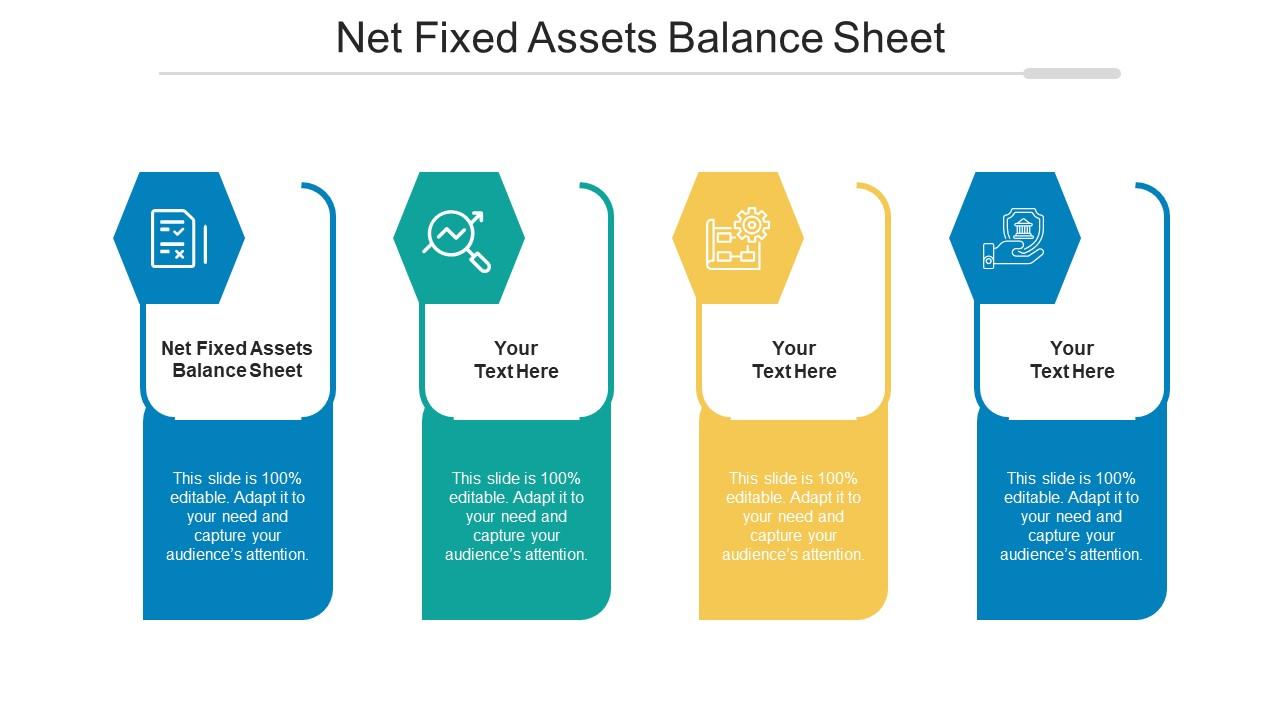

Finance
How To Buy Prison Stocks
Published: January 17, 2024
Learn how to invest in prison stocks and explore the financial opportunities in this niche industry. Discover the potential for growth and profitability in the finance sector.
(Many of the links in this article redirect to a specific reviewed product. Your purchase of these products through affiliate links helps to generate commission for LiveWell, at no extra cost. Learn more)
Table of Contents
Introduction
Investing in the stock market offers a plethora of opportunities to grow your wealth, with every sector presenting its own unique investment prospects. One sector that has gained attention in recent years is prison stocks. While the concept of investing in such stocks may seem unconventional, it is important to understand the underlying factors driving this investment choice.
Prison stocks refer to companies that operate in the correctional industry, providing services such as prison management, inmate healthcare, and inmate transportation. These companies are typically publicly traded on stock exchanges and offer investors the opportunity to profit from the corrections industry.
It is essential to note that investing in prison stocks raises ethical concerns, as the industry is tied to the criminal justice system and the controversial issue of mass incarceration. However, this article aims to provide an objective overview of prison stock investing, focusing on the financial aspects and potential returns.
Before delving into the details of investing in prison stocks, it is crucial to conduct thorough research and understand the key factors that drive this sector. Exploring the various aspects of this investment opportunity will enable you to make informed decisions and assess the associated risks.
In the following sections, we will provide an overview of prison stocks, discuss how to research and evaluate them, and highlight the potential risks and considerations to keep in mind when diving into this unique sector.
Understanding Prison Stocks
Prison stocks, also known as correctional stocks, are investments in companies that operate within the correctional industry. These companies provide essential services such as prison management, inmate healthcare, and inmate transportation.
Investing in prison stocks involves understanding the dynamics of the corrections industry and its potential for growth. The primary source of revenue for these companies comes from government contracts to manage and provide services to correctional facilities.
One of the main factors that make prison stocks appealing to investors is the consistent demand for correctional services. The need for incarceration and management of inmates remains irrespective of economic conditions, providing a relatively stable revenue stream for these companies.
Additionally, the corrections industry has seen substantial growth in recent years. The increase in incarceration rates and longer prison terms has created a greater need for prison management services. This growth trend has led to the emergence of various publicly traded companies in the prison stock market.
Investing in prison stocks can provide exposure to a unique sector that operates differently from traditional industries. However, it is essential to note that this investment choice comes with its ethical and social implications. Critics of the prison industry argue that investing in prison stocks may inadvertently support or benefit from the mass incarceration problem, raising concerns about profiting from the confinement and treatment of individuals.
On the other hand, proponents of prison stock investing argue that these companies play a crucial role in providing essential services and maintaining the functionality of correctional facilities. They believe that by investing in these stocks, individuals can contribute to the improvement of inmate care and rehabilitation programs.
Ultimately, understanding prison stocks involves grasping the dichotomy between the financial opportunities they offer and the ethical considerations tied to the corrections industry. Conducting thorough research and self-reflection will help investors make an informed decision about whether or not to include prison stocks in their investment portfolios.
Researching Prison Stocks
When considering investing in prison stocks, conducting thorough research is paramount to make informed investment decisions. Here are some key steps to help you in your research:
- Understand the Corrections Industry: Begin by gaining a comprehensive understanding of the corrections industry. Research the various segments within the industry, such as prison management, inmate healthcare, and inmate transportation. Understand the key players, their roles, and the services they provide.
- Review Financial Statements: Analyzing the financial health of a company is crucial before investing. Review the company’s financial statements, including its revenue, expenses, and profitability. Pay attention to the company’s growth trends, debt levels, and cash flow. Look for consistent and sustainable financial performance.
- Stay Informed About Contracts: Since government contracts play a significant role in the revenue generation of prison stocks, keeping track of contract awards and renewals is essential. Monitor news and look for updates regarding potential contract opportunities for the companies you are researching.
- Assess Industry Trends: Stay abreast of industry trends and developments. Research factors that could impact the corrections industry, such as changes in legislation, criminal justice reforms, or shifts in public sentiment. Understanding these trends will help you gauge the long-term growth prospects for companies in the sector.
- Consider Corporate Governance: Evaluating the corporate governance practices of the companies you are researching is important. Look into the leadership team, their experience, and their track record. Assess their commitment to ethical practices, transparency, and shareholder value.
- Perform Peer Analysis: Compare the performance and valuation of the prison stocks you are considering against their industry peers. Look at factors such as revenue growth, profitability margins, and valuation ratios. This analysis will reveal how the companies stack up relative to their competitors.
- Seek Expert Opinions: Consult financial professionals, analysts, or experts who specialize in the corrections industry. Their insights can provide valuable perspectives and help you make more informed decisions. However, always conduct your own research to validate and supplement their opinions.
By following these research steps, you can gain valuable insights into the prison stocks you are considering. Remember, investing requires diligence and an understanding of the specific risks and opportunities associated with the corrections industry.
Evaluating Prison Stocks
When evaluating prison stocks for investment, it is crucial to consider several factors to determine their potential for long-term profitability. Here are key aspects to evaluate when considering prison stocks:
- Financial Performance: Review the financial performance of the company. Look at its revenue growth, profitability margins, and consistency of earnings. Analyze the company’s balance sheet to understand its financial stability and debt levels. A company with strong financials demonstrates the ability to generate consistent returns.
- Government Contracts: Assess the company’s contracts with government entities. Evaluate the duration, value, and terms of these contracts. Consider the company’s ability to secure and renew contracts, as they are a primary source of revenue.
- Competitive Advantage: Investigate the company’s competitive advantage within the industry. Consider factors such as proprietary technology, scale, reputation, and relationships with government agencies. A company with a strong competitive position is more likely to maintain or expand its market share.
- Industry Growth Potential: Examine the growth potential of the corrections industry. Factors such as population trends, changes in legislation, and criminal justice policies can impact the industry’s future prospects. Investing in a growing industry can contribute to potential returns.
- Social and Ethical Considerations: Take into account the social and ethical implications of investing in prison stocks. Evaluate your personal values and any potential backlash that might arise from investing in this sector. Consider the potential impact on the company’s reputation and the possibility of regulatory changes affecting the industry.
- Risk Management: Assess the company’s risk management practices. Consider factors such as operational risks, litigation risks, and regulatory compliance. Evaluate whether the company has implemented effective measures to mitigate these risks.
- Dividend Policy: Evaluate the company’s dividend policy, if applicable. Consider the stability and growth of dividends over time. A strong and consistent dividend payout can enhance the total return on your investment.
Additionally, it is essential to diversify your portfolio and not invest solely in prison stocks. Diversification helps spread risk and minimize the impact of any single investment. By evaluating these factors, you can make a more informed decision when evaluating prison stocks for investment.
Investing in Prison Stocks
Investing in prison stocks can be a unique addition to your investment portfolio, but it is important to approach it with caution and consider the associated risks. Here are some key points to keep in mind when investing in prison stocks:
- Align Investments with Personal Values: Before investing in prison stocks, reflect on your personal values and assess whether investing in the corrections industry aligns with your ethical standpoint. Consider the potential controversies and criticisms surrounding this sector and evaluate if you are comfortable investing in it.
- Practice Due Diligence: Conduct thorough research and due diligence before investing. Understand the company’s financials, contracts, competitive standing, and growth potential. Stay informed about industry trends and evaluate the risks and opportunities associated with the corrections industry. This information will help you make more informed investment decisions.
- Diversify Your Portfolio: As with any investment strategy, diversification is important. Avoid overexposure to prison stocks by diversifying your portfolio across various industries and asset classes. This strategy helps mitigate risks and allows you to benefit from the potential growth of different sectors.
- Consider Long-Term Investing: Investing in prison stocks should typically be considered as a long-term investment strategy. The corrections industry is subject to a variety of external factors that can impact its performance. By taking a long-term approach, you give your investments more time to potentially grow and weather any short-term volatility.
- Consult with Financial Professionals: Seek advice from financial professionals who specialize in the corrections industry or socially responsible investing. They can provide valuable insights and guidance tailored to your investment goals and values. However, always make your own informed decisions after conducting your own research.
- Regularly Monitor Investments: Once you have invested in prison stocks, regularly review and monitor their performance. Stay informed about any changes in the industry or company-specific news that could impact your investments. Adjust your portfolio as necessary to maintain a balanced and diversified approach.
Remember, investing in prison stocks carries its own unique set of risks and considerations. It is crucial to carefully evaluate the potential financial returns alongside the ethical implications tied to the corrections industry. By being informed and thoughtful in your investment approach, you can make decisions that align with your values while striving for long-term financial success.
Risks and Considerations with Prison Stocks
Investing in prison stocks comes with its own set of risks and considerations. It is important to be aware of these factors before making any investment decisions. Here are some key risks and considerations associated with prison stocks:
- Ethical Concerns: The corrections industry is linked to the controversial issue of mass incarceration. Investing in prison stocks can raise ethical questions, as it may appear to support or benefit from the confinement and treatment of individuals. Consider whether you are comfortable aligning your investments with the ethical implications tied to the industry.
- Regulatory and Political Risks: The corrections industry is subject to regulatory oversight and can be influenced by political changes. Changes in legislation, criminal justice reforms, or shifts in public sentiment can impact the operations and profitability of prison stocks. Stay informed about political and regulatory developments that could affect the industry.
- Contract Dependencies: Prison stocks rely heavily on government contracts for revenue. The renewal, termination, or non-award of contracts can significantly impact the financial performance of these companies. Companies heavily reliant on a few key contracts may be more susceptible to risks associated with contract dependencies.
- Social Backlash: Investing in prison stocks may attract social backlash and negative public sentiment. Various advocacy groups and organizations have criticized the corrections industry, and investing in it may subject you to scrutiny or reputation risks. Consider the potential impact on your personal image and any potential consequences associated with investing in this sector.
- Uncertainty of Future Demand: While the demand for correctional services has shown consistent growth, the future is uncertain. Changes in criminal justice policies, rehabilitative approaches, or alternatives to incarceration may impact the need for traditional correctional services. It is important to evaluate the long-term sustainability of the demand for prison-related services.
- Operational and Litigation Risks: Prison stocks can be exposed to operational risks such as security breaches, inmate safety concerns, or lawsuits. These risks can result in financial liabilities, reputational damage, and legal complications. Analyze the risk management practices and track record of the companies you are considering to mitigate potential operational and litigation risks.
- Financial Volatility: Like any investment, prison stocks are subject to financial volatility. Economic downturns, changes in interest rates, or market fluctuations can impact their stock prices. Be prepared for potential price fluctuations and consider your risk tolerance before investing in this sector.
It is crucial to weigh these risks and considerations against the potential financial returns and your personal values. Make sure to conduct thorough research, consult with financial professionals, and reassess your investment strategy periodically to align with your goals and risk tolerance.
Conclusion
Investing in prison stocks offers a unique investment opportunity, but it is important to approach it with careful consideration. In this article, we have provided an overview of prison stocks, discussed the process of researching and evaluating them, and highlighted the risks and considerations associated with this sector.
While prison stocks can provide potential financial returns, investing in this sector raises ethical concerns and requires a careful evaluation of personal values. It is essential to consider the social implications and potential backlash associated with investing in the corrections industry.
Thorough research, due diligence, and staying informed about industry trends and government contracts are vital when considering prison stocks. Evaluating financial performance, competitive advantages, and industry growth potential can help identify potential investment opportunities.
However, it is crucial to diversify your portfolio and not rely solely on prison stocks. Diversification helps mitigate risk and provides exposure to other sectors and asset classes.
Lastly, it is important to regularly monitor your investments and stay informed about any changes in the corrections industry or your specific holdings. Adjust your portfolio as needed to maintain a balanced and diversified investment approach.
Ultimately, investing in prison stocks is a decision that should be thoroughly considered, taking into account both the financial opportunities and the ethical implications. By being informed, conducting research, and aligning your investments with your values, you can make decisions that are both financially and morally sound.














